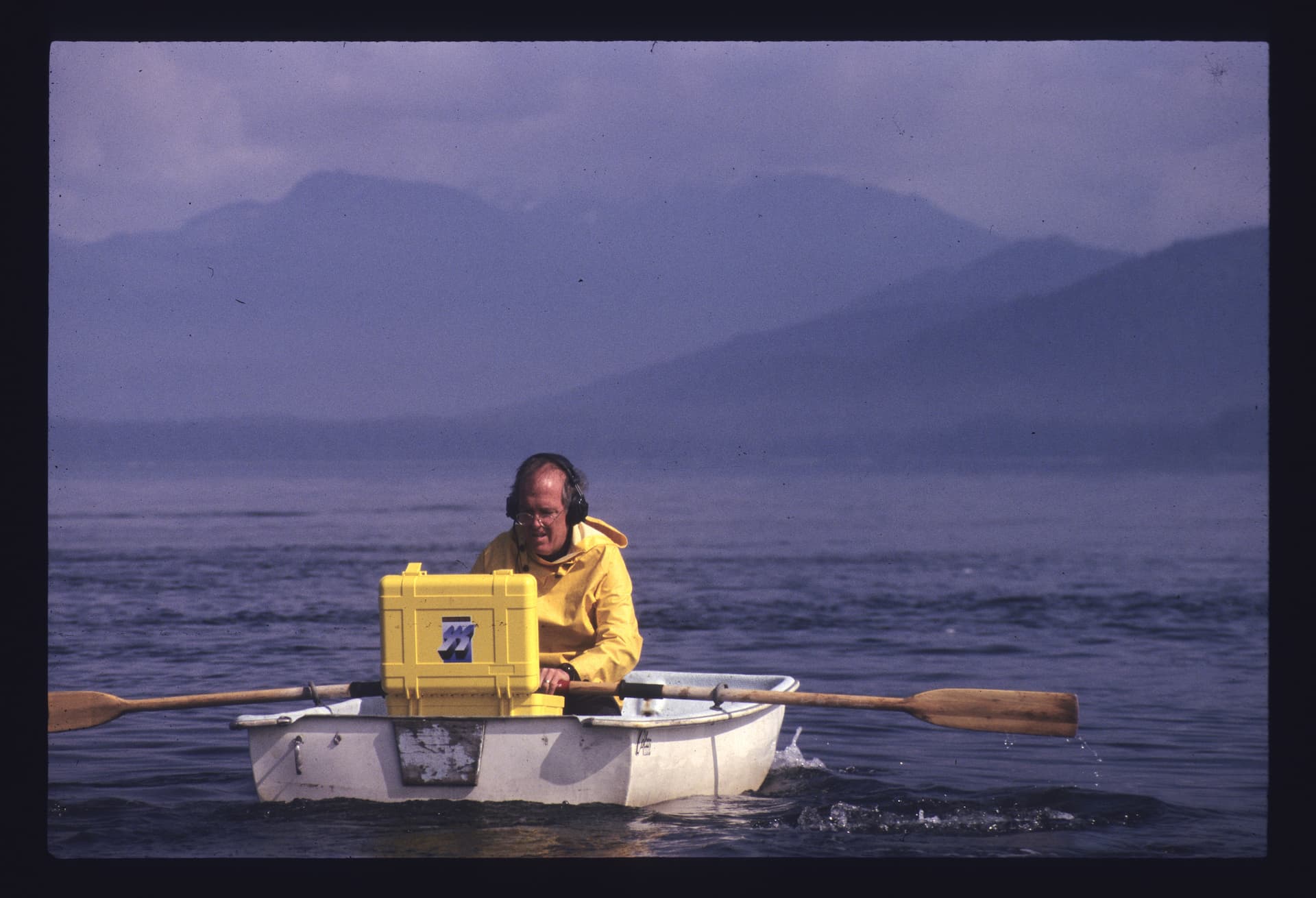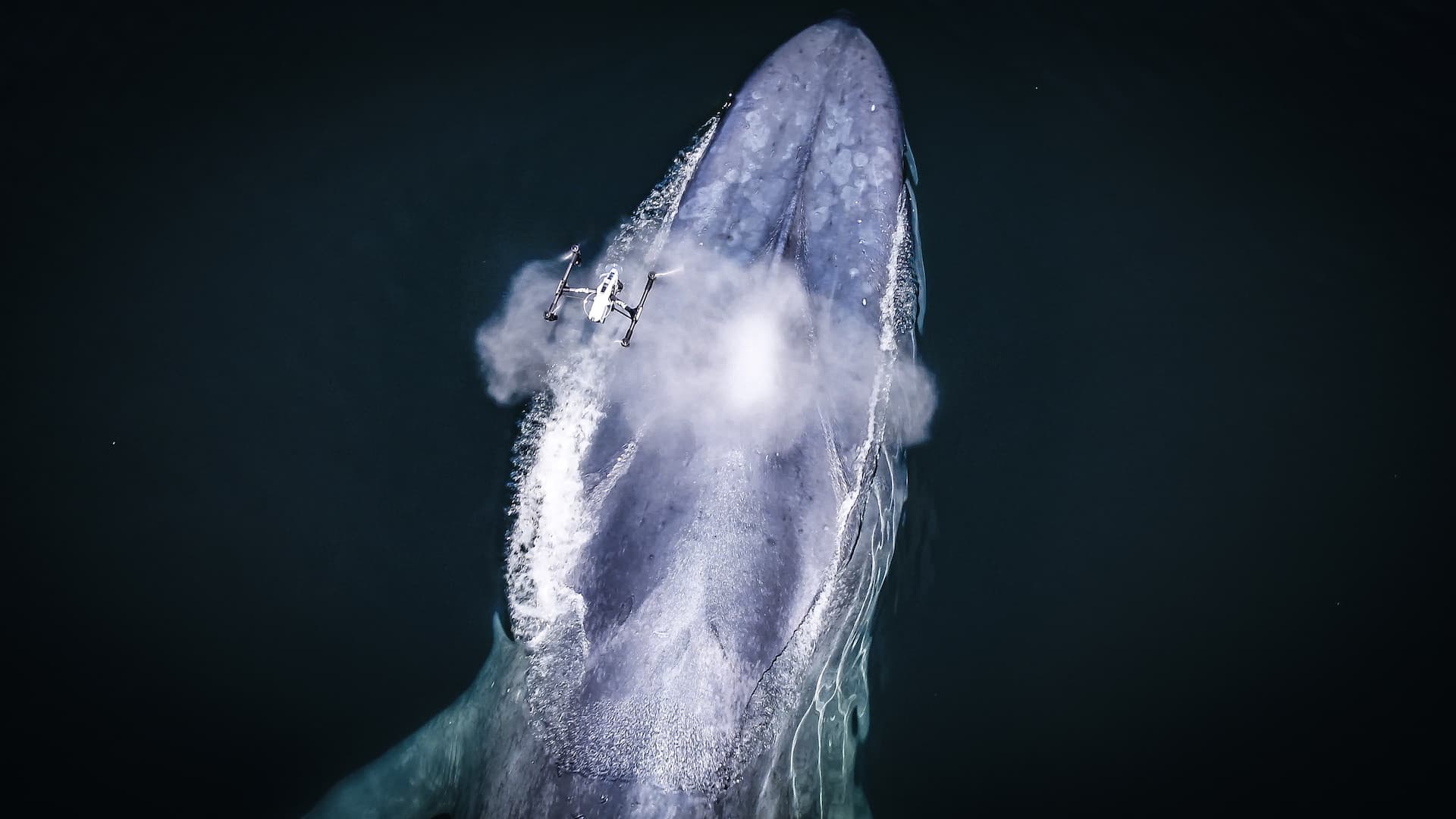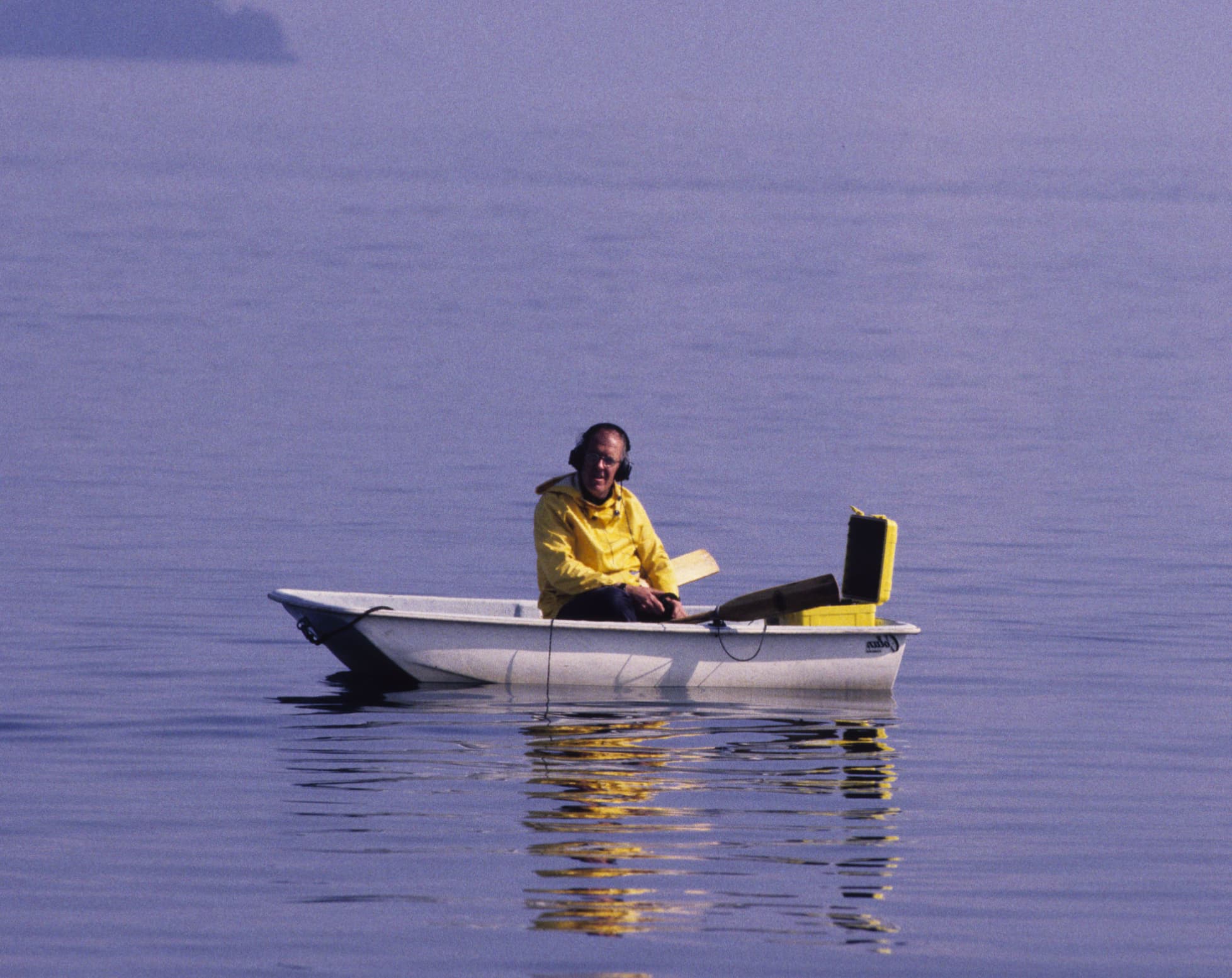Advertisement
This biologist eavesdropped on humpback whales for decades. What he heard helped save the species
Resume
Editor's note: This story was original published in July 2022. We've updated with news of Roger Payne's death.
The man behind the iconic album "Songs of the Humpback Whale" has died.
Biologist Roger Payne recorded the haunting whale songs with his then-wife, Katharine Payne, and engineer Frank Watlington, more than 50 years ago. The album became the most popular nature recording in history, energizing the "Save the Whales" movement and pushing Congress to pass the Marine Mammal Protection Act.
Payne died at his home in Vermont last Saturday, at the age of 88.
WBUR spoke with him last year about his life's work.
This interview has been condensed and edited for clarity.
Interview Highlights
How did you get interested in animal sounds in the first place?
"I started as an undergraduate. I did my work on bats. I was interested in the directionality of the ears of bats, how they are able to locate sounds with the accuracy that they do. And then when I got a Ph.D. at Cornell, I was studying how owls locate prey in total, total darkness. And then I went on to a postdoc at Tufts University, where I worked with an insect physiologist studying the directionality of the ears of moths.
"As a friend of mine put it at the time, 'Roger has gone from one fly-by-night organism to another.' I guess that's exactly what happened."

Could you tell me about the first time you saw a whale?
"The first time I saw a whale, up close, I was working at Tufts University and I heard on the air an announcement that a whale had washed ashore on Revere Beach, and I decided I wanted to see it. By the time I got there somebody had cut its flukes off and they were missing. Somebody else had carved their initials in the side of it and somebody else had stuffed a cigar butt in the blowhole. And I just — I stood looking at this animal.
"It was perfectly clear to me that nature was under the most appalling assaults, and most people didn't seem to know anything about it. And I thought, what could I do, if the only thing I know about is the sounds that animals make and respond to? And I thought — whales! That’s what I could do."
What did people know about whales at the time, in the late '60s?
"People knew at the time that a whale was a big blubbery animal, and that's about it. There was no behavioral work on whales other than an indication that they were able to migrate long distances. At the time we were killing — humanity was killing — 33,000 large whales each year; it was dead obvious that whales were on the brink of extinction."
Other scientists had already started recording whale sounds — how did you connect with them?
"There was this fellow in Bermuda named Frank Watlington, who worked for the Navy doing something secret, and he had heard sounds that he thought were whales. And so I went with my former wife, Katie Payne, and we got a ride.
"As we boarded the boat, Frank took us through the engine room and took out of his pocket a tape, a magnetic tape. And he threaded the tape across the heads of the recorder, and he hit the on switch and then, leaning forward and putting the headphones on my head, he said, “I think these are humpback whales!” And what I heard completely blew my mind.
"I had never heard anything in nature that was remotely as extraordinary a performance. ... I decided that I wanted to make a record almost at once. I just decided the world has to hear this. That record took off and it became the most successful recording of natural history sounds ever."

Can you describe the sound?
"It's a direct emotional exchange. It's like what happens if you look at a picture and it just moves you totally. There it is, and it hits you really hard.
"A lot of people weep when they hear these sounds. It hits them emotionally. And I've never wept when hearing them, but I come damn close."
You're still involved with a project to communicate with whales — the Cetacean Translation Initiative (CETI). Can you tell me about that?
"The CETI Project will attempt to follow whales for long periods of time. There is a group of sperm whales down off the island of Dominica in the Caribbean, and we're setting up hydrophones to be able to record these sounds and hopefully eventually to be able to figure out who said what and what they were doing at the time.
"What we're trying to do at CETI is to translate whale speak. Do I think it's going to be the same sort of full rich language that humans have? No, I certainly don't. But I think it will have some very complex and interesting things."
The whale songs have this emotional impact on people. If you found a way to translate the songs into words, would they lose something? What if they're just saying, "Hey, how you doing?" "Hey, how you doing?"
"Just the fact that you knew it was saying something so mundane and banal as that would be fascinating. You know, 'Oh my God, is that what they're saying? Who knew?'
"In humpback whales, you see fantastically intricate, fascinating, cooperative behavior in which they're corralling schools of fish. And some are doing one thing and others are doing another, and they're tool-using, they're spinning a net made out of bubbles underwater. And I think they're actually changing the mesh size of the net, depending on what prey they're after. And that kind of behavior leads me to believe that these animals really do have fancy brains and probably can think at some level that would be of great interest to the world."

Listening to you describe them makes me not want to know what they're saying, because what if it turns out they're just as bad as us?
"But just think of how important that is to know!"
If you find some way to communicate with whales, what would you say to them?
"I would love to ask them simple things, you know. 'Is your mother faithful to your father?' "
That's not a simple question! Maybe you should start with something less personal.
"It's a very simple question — it is the essence of questions."
I feel like I'd want to apologize, I guess.
"Yes, of course. 'Sorry' would be a good word to say.
"But I would say, you know, 'Sing!' or 'Again!' And there are all kinds of other things.
"Once a whale speaks to humanity, no matter how simple its message, it has a chance, I think, to get the attention of the world in a way that it just desperately needs to have. And once that happens, I think all sorts of change will occur. Once that begins, then I am filled with hope."
This article was originally published on July 01, 2022.
This segment aired on July 1, 2022.
